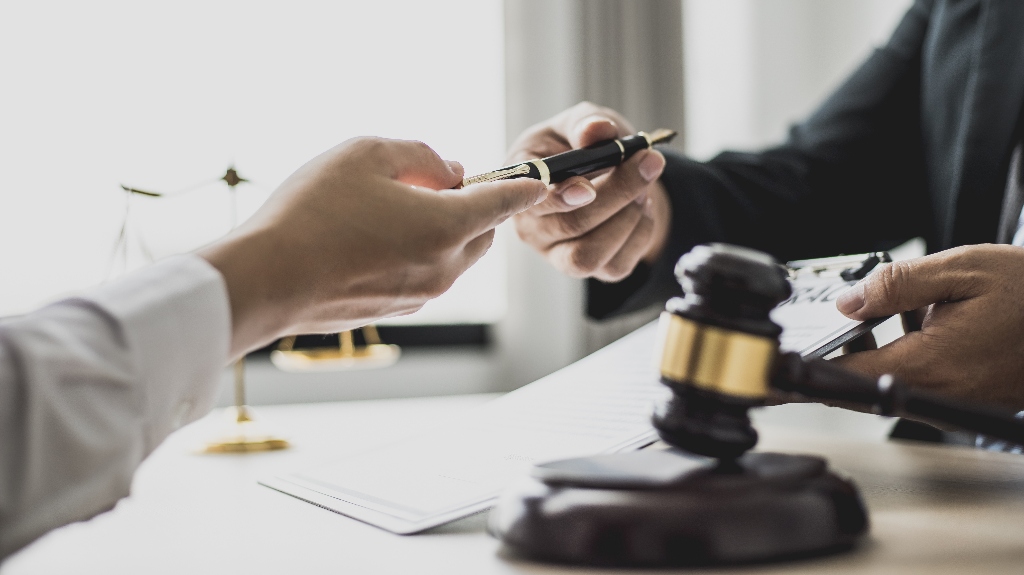Greensboro Bankruptcy Court: What to Expect on Your Filing Day
After reviewing and signing your Chapter 7 bankruptcy papers, the next thing you need to do is file them with the appropriate court. But what should you expect after you file? Filing for bankruptcy gives a lot of people a fresh start by ending collections calls and eliminating specific debts.
In the meantime, keep reading to learn what comes next in a Chapter 7 case and how an experienced Greensboro bankruptcy lawyer can guide you through the process. To learn more, contact the Law Office of Stephen E. Robertson, PLLC, today.
What to Expect Immediately After Filing for Bankruptcy
Right after filing for bankruptcy, the court will notify your creditors of the filing, issue you a case number, and appoint a trustee to your case. The trustee will manage your assets, which are now a part of your bankruptcy estate. The trustee plays a big role in your case. They check that your paperwork is correct and decide whether any of your property needs to be sold.
As soon as your case is filed, an “automatic stay” goes into effect. This means creditors must stop calling you and can’t try to collect any money. It also puts a pause on foreclosure, wage garnishment, and debt collection lawsuits, and liens while the court reviews your case.
Attending a Meeting of Creditors
About 30 to 45 days after you file, the court will set up a “341 Meeting,” also called a “Meeting of Creditors.” This is usually the only time you will need to appear in anything related to court for your bankruptcy. Before the meeting, you must send the trustee copies of your pay stubs, bank statements, and tax returns.
At the meeting, the trustee will be in charge. They will place you under oath and inquire about your property, your debts, and the information in your bankruptcy papers. They will want to make sure everything is accurate and understand your full financial situation.
Creditors are told about and permitted to attend the meeting, but they almost never show up. They usually only come if they are upset or think you may have lied or committed fraud when filing for bankruptcy. Your meeting will likely be short if you don’t own much property. But you may still have to wait up to an hour because many other cases are scheduled at the same time.
After the Meeting
The trustee will decide which of your belongings, if any, need to be sold to help pay your debts. They will then sell those items. Some things may be sold, while for others you may be allowed to keep them if you pay their cash value. If you don’t own any property that can be taken, the trustee will tell the court.
During this time, creditors will likely give you reaffirmation agreements. These are contracts that say you agree to keep paying specific secured debts, like a car note or a mortgage, even once your bankruptcy is finished. In return, you get to keep the car or house. You and the creditor must both sign these agreements before the court will close your case and give you a discharge.
What to Expect When Your Bankruptcy Case is Finished
After the Meeting of Creditors, you will have to take a personal financial management course before your debts can be discharged. This course is not the same as the credit counseling course you took before you filed for bankruptcy.
It’s best to take this course as soon as possible after your Meeting of Creditors. You don’t want your discharge to take any longer than the usual 90 days. For most people, the court issues the discharge after about 90 days because creditors have that long to object, and they almost never do.
When you get your discharge, you’ve reached the goal of your bankruptcy. The debts that can be erased are wiped out, and you can move forward with a fresh financial start.

What Can I Expect After My Bankruptcy Is Discharged?
You will be able to start rebuilding your credit once your bankruptcy is discharged. Contrary to popular belief, bankruptcy does not permanently ruin your credit. Many people are able to buy a home a few years later by using special bank accounts and secured credit cards to improve their credit score.
Your bankruptcy case might stay open even after your discharge. For instance, the trustee may still be reviewing or selling some of your assets.
Once you are discharged, your credit reports should show that your old debts are gone. Check your credit reports about a month later to make sure they were updated correctly. If something is wrong or still showing, you should dispute it with the credit bureau that made the mistake.
Discuss Your Case With a Greensboro Bankruptcy Lawyer
If you want to know what happens after filing Chapter 7, talk to an experienced Charlotte bankruptcy attorney at the Law Office of Stephen E. Robertson, PLLC. We can guide you through the process and help you avoid expensive mistakes. Contact us today at (336) 370-6760 or fill out the contact form on our website.
